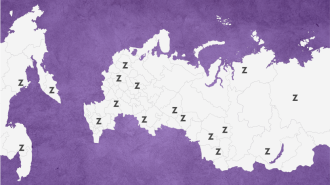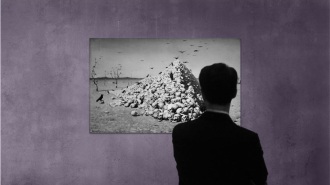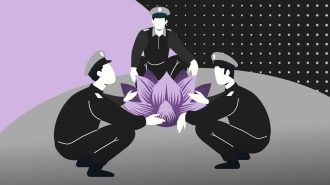A recent article by a group of American professors on the introduction of DEI into university practice in the United States has caused a wide resonance. To what extent can DEI be considered a purely American phenomenon, and to what extent has it been assimilated by academic communities in other countries? Germany is a curious example. This is the subject of an article prepared for T-invariant by Alexander Libman, Doctor of Economics, Professor of Russian and East European Politics at the Free University of Berlin.
society
Students of the "School of District Anti-Corruption" together with Groza and T-Invariant studied the composition of expert councils at the Ministry of Education and Science of the Russian Federation. It turned out that more than 10 per cent of the experts who influence decision-making "on the most important issues of the ministry's activities" are plagiarists and violators of academic ethics.
How do universities in exile try to preserve academic freedoms for those who have lost them? Why and at what point does the idea of boycotts of universities begin to contradict academic freedoms? T-invariant spoke to Dmitry Dubrovsky, PhD in History, Professor at the Free University.
Since September 1, a number of Russian universities have begun training "information warfare specialists". Such programs were "tested" even before the full-scale invasion, but this year there have been significantly more of them. T-invariant found out which universities have such programs and who will teach students propaganda.
The internal German resistance to the National Socialist dictatorship is a phenomenon that is not well known to anyone other than specialists. Nevertheless, there were many hotbeds of such struggle. T-invariant tells the story of a group of scientists and teachers who united around professors from the University of Freiburg. Its members worked closely with other German resistance groups and, despite the risk of exposure and threats to their lives, remained true to their professional and civic duty.
This summer, Vladimir Zvonovsky and Alexander Khodykin published a book “Russian Public Opinion in the Conditions of Military Conflict.” T-invariant spoke with Doctor of Sociological Sciences Vladimir Zvonovsky about the results of the study.
The full-fledged work of the YouTube video service in Russia is gradually ceasing. What do scientists, leading million-viewer channels, and bloggers who popularize science think about this? Astrophysicists Sergey Popov, Vladimir Surdin, historian Mikhail Rodin, popularizers of science Vlad Goncharuk, Evgenia Timonova and Vitaly Egorov answer.
At the beginning of March 2022, graduate students of the European University in Florence Emil Kamalov and Ivetta Sergeeva, political scientist Margarita Zavadskaya and sociologist Nika Kostenko launched a sociological project OutRush, during which they surveyed three waves of those who left. Who are these people, what do they do, what do they think about returning home, what do they hope for? Nika Kostenko, a researcher at Tel Aviv University, talks about the results of the T-invariant study.
Who are they - convinced patriots who brought the advance of the “Russian world” closer? Or banal opportunists who took advantage of the situation for mercantile purposes? T-invariant presents the results of a study of the biographies of heads of universities located in the occupied Ukrainian territories.
February 24, 2022 is a date that divided the lives of millions of people into before and after. Millions of Ukrainians became refugees, hundreds of thousands of Russians were forced to leave the country, thousands of people became political prisoners. Schools and universities have been invaded by Z-ideology. This gave rise to a new Russian reality, which more than 75 sociologists, historians, demographers and economists studying Russian society tried to comprehend.
How does war become routine, heroic and ordinary? Do you need to look at photographs of hostages every day? Where is the line between adapting to war and rejecting conflict? These questions were discussed by the participants in the discussion “Normalization of Evil” - urban geographer Aleksey Novikov, visiting researcher at Ariel University Viktor Vakhshtain and communication specialist Grigory Ogibin.
In Chicago, at the annual conference of the Russian-speaking American Scientific Association (RASA), sociologists who have recently been living in the United States chose for their presentations topics that can now hardly be discussed publicly while in Russia. Sergey Erofeev (Rutgers University)presented a brief overview of the most interesting presentations for T-invariant.













